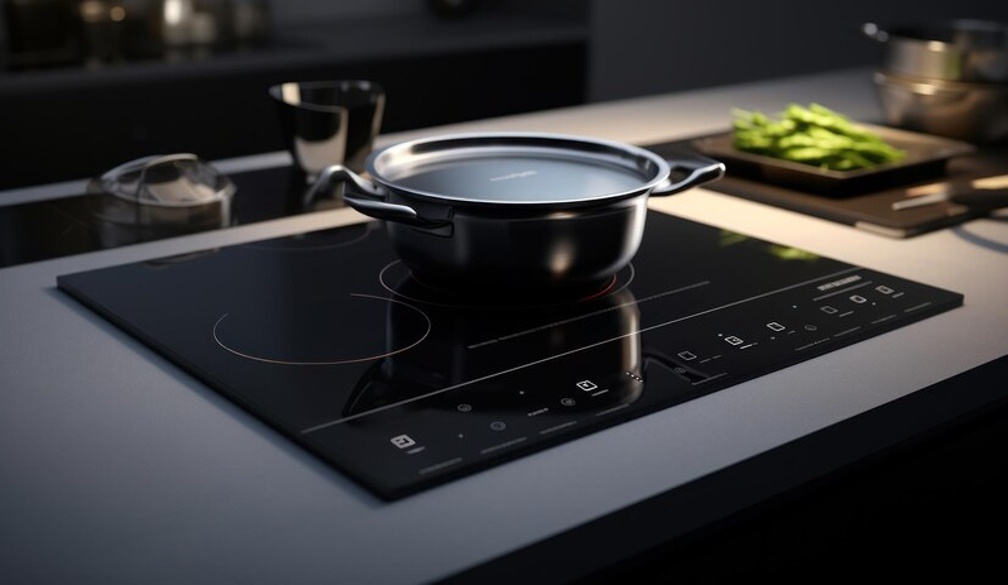Induction Stove vs Electric Stove: How to Choose the Perfect Cooktop for Your Kitchen?

If you're in the market for a new cooktop, you've likely come across the age-old debate of induction stove vs electric stove. Both options have their merits, but which is right for your kitchen? Let's dive into the nitty-gritty of these cooking powerhouses and help you make an informed decision.
The Main Differences: Induction Range vs Electric Range
The key difference lies in how they heat your pots and pans. Let's break it down:
Working Method:Electric stoves: These use heating elements beneath a glass or ceramic surface. When you turn on a burner, the element heats up, transferring heat to the cooktop surface and your cookware.
Induction stoves: These use electromagnetic fields to heat your cookware directly. The cooktop doesn't get hot; instead, it creates a magnetic field that interacts with the iron in your pots and pans, causing them to heat up.
Heat Control:
Electric stoves: They tend to have slower heat response times. When you adjust the temperature, it takes a while for the heating element to cool down or heat up.
Induction stoves: These offer precise and instant temperature control. As soon as you adjust the settings, the magnetic field changes, immediately affecting the heat in your cookware.
Energy Efficiency:
Electric stoves: While more efficient than gas, they still lose some heat to the surrounding air.
Induction stoves: These are the most energy-efficient option, as they transfer energy directly to the cookware with minimal heat loss.
Safety:
Electric stoves: The cooktop surface gets hot and stays hot for a while after use, posing a burn risk.
Induction stoves: The surface stays relatively cool, making them a safer option, especially for households with young children or pets.
Cookware Compatibility:
Electric stoves: Work with all types of cookware.
Induction stoves: Require magnetic cookware like cast iron or stainless steel.
Cooking Performance:
Electric: It may have hot spots, leading to less even cooking.
Induction: Offers precise control and even heating.
Kitchen Temperature:
Electric: Can increase ambient kitchen temperature during use.
Induction: Keeps the kitchen cooler due to less heat loss.
Features to Consider
When comparing an induction cooktop vs an electric stove, keep these features in mind:
Suitability: Choose what works best for your kitchen and cooking style
Electric cooktop might be best for budget-conscious shoppers, those who prefer familiar cooking methods, and kitchens with existing non-magnetic cookware. They are generally cheaper than induction models and require no learning curve if you're used to cooking on electricity.
On the other hand, induction stoves might be the better choice for tech-savvy cooks who appreciate precise control, families with young children (due to enhanced safety features), energy-conscious households, and those who value faster cooking times. While they may have a higher upfront cost, their energy efficiency can lead to savings in the long run.
When shopping for cooktops, look for the Energy Rating Label. Induction cooktops typically have higher star ratings, which lead to lower running costs and reduced environmental impact. Both types require professional installation, especially if you're switching from gas. As for maintenance, electric stoves can be cleaned with a damp cloth and ceramic cooktop cleaner, while induction stoves need only a wipe-down with a soft cloth. However, be careful with induction cooktops, as scratches can affect their performance.
Making Your Choice
When deciding between an induction cooktop vs electric stove, consider:
Ready to Upgrade Your Kitchen?
Now that you've learned the differences between induction and electric cooktops, it's time to choose. Why not head to your local appliance store, the Appliance Giant, and try both types? Nothing beats hands-on experience when it comes to choosing your perfect kitchen companion.

















